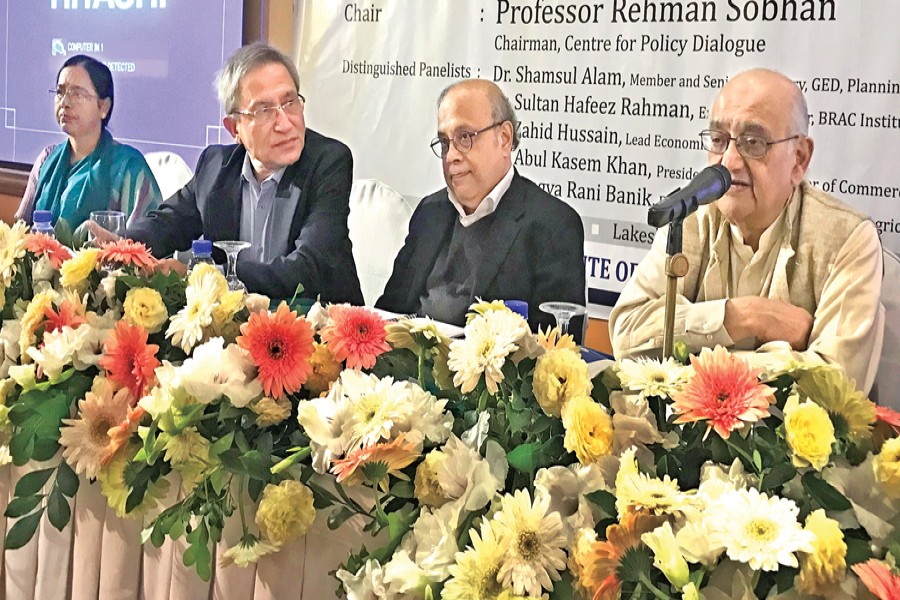Speakers at a programme on Thursday said policymakers, researchers and private sector should work closely to lessen the gap between supply and demand of research to get the best implication results.
They said the country should initiate its research independently, as the research, influenced and funded by the donor agencies, would not be able to get the necessary outcome for Bangladesh.
The distinguished speakers also urged the government to keep reliable data open for use by both public and private sectors and individuals.
They were speaking at the concluding session of Bangladesh Institute of Development Studies (BIDS) two-day research almanac in a city hotel.
Speaking as the chair, Professor Rehman Sobhan said most researchers in the country cannot reach out to the genuine customers of quality research.
On other hand, policymakers do not understand which research, on what and when they need, he also said.
"This is a huge gap. Everybody should work closely to lessen the gap."
From his brief experience as a policymaker, he said he formulated 29 taskforces when he was in a caretaker government. But the reports of those taskforces were never utilized by any elected government.
He further said he later engaged himself with Center for Policy Dialogue (CPD) to remove the research-policy divide.
World Bank (WB) Lead Economist Dr Zahid Hussain said there is a research-policy divide, but it is not a total divide.
The divides are really due to the diversification of research areas. Perception gap, contextual gap, institutional links and evidence in research are the key reasons behind the research-policy divide.
He also said the country lacks credible data. "Without credible data, how can we produce a reliable research?"
Dr Zahid Hussain opined, "It is true that the donor agencies, like - WB, influence their funded research, but outcome of the results are not predetermined."
He added that research results from the East Asian countries are more relevant in the context of Bangladesh than those in the Western countries.
Executive Director of BRAC Institute of Governance and Development Dr Sultan Hafeez Raman said the country has been growing significantly, but there is lack of adequate quality research.
He also said the public sector is reluctant to share data with the private sector.
Dhaka Chamber of Commerce and Industry (DCCI) President Abul Kasem Khan said for the best use of research it should be market-driven.
He further said DCCI is interested to invest in research to get the targeted results for the targeted sectors.
The private sector should be allowed to work in policy formulation, implementation and monitoring to reduce this research-policy divide.
Visiting Professor of East West University Salim Rashid said Bangladesh should conduct independent research, avoiding the donors' influence to get the best relevant results for the country.


